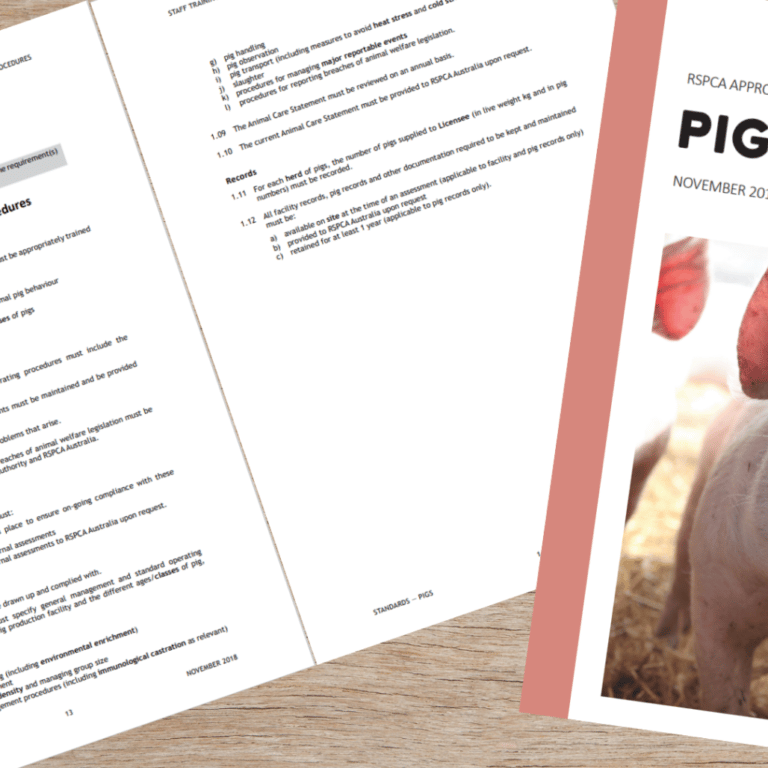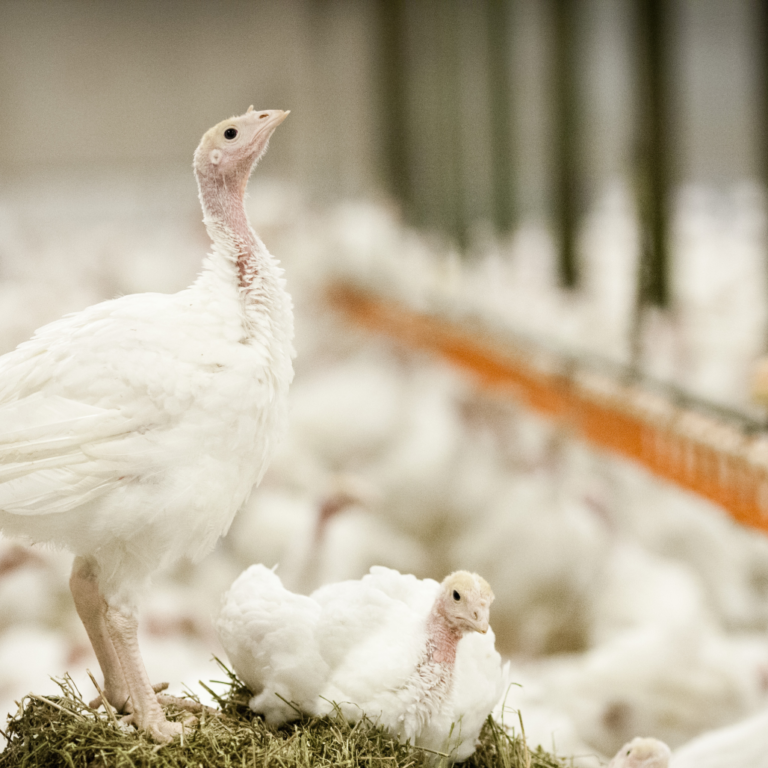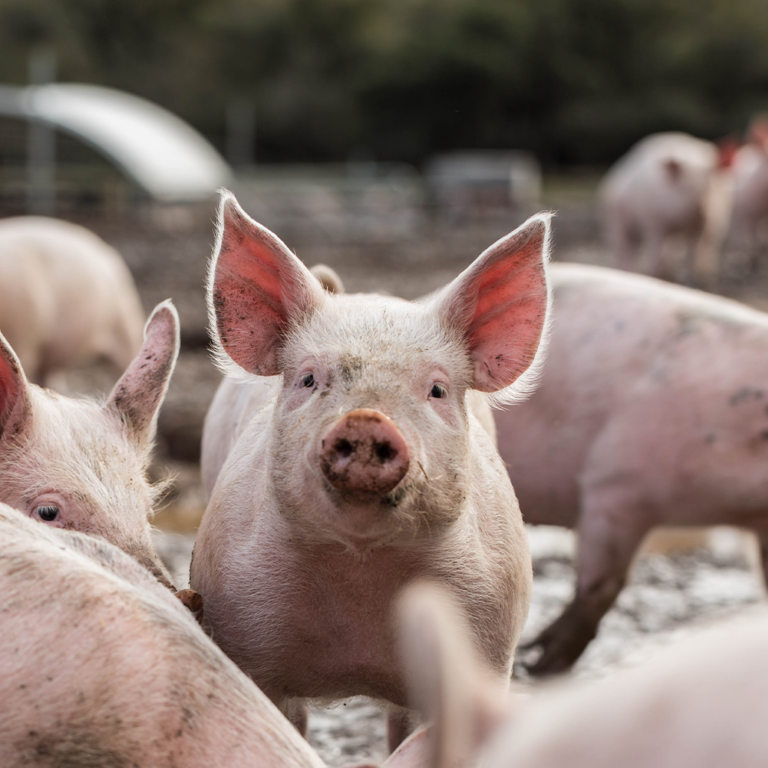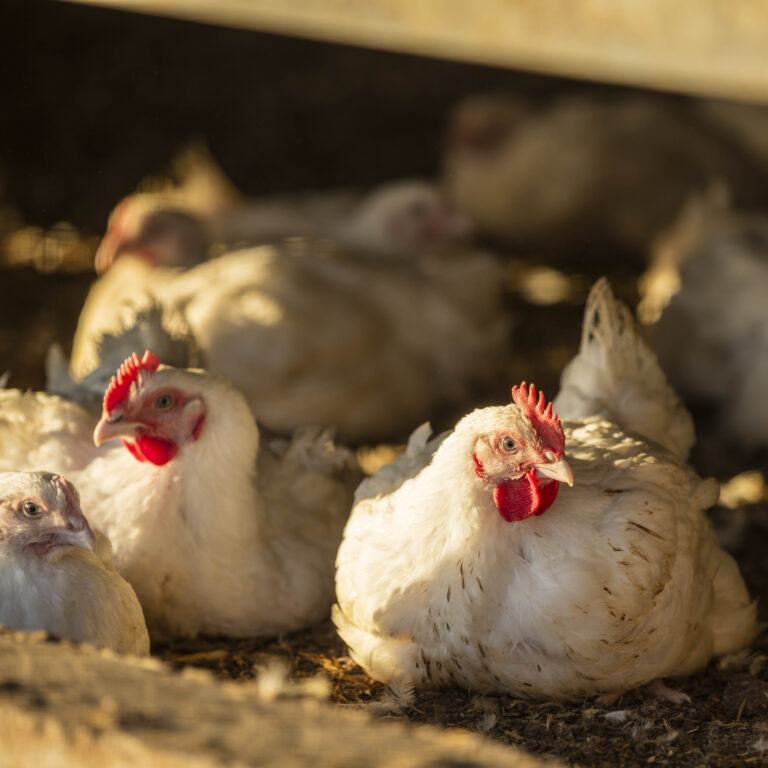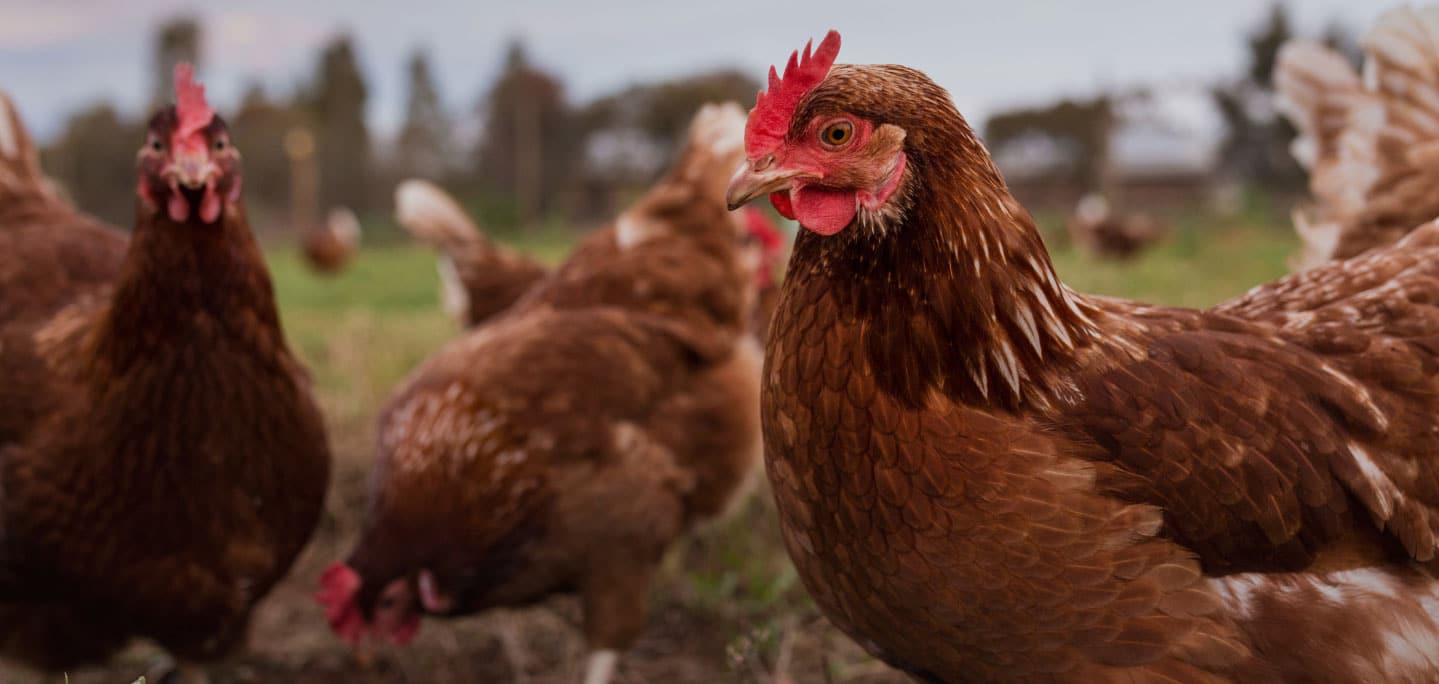Today, October 14 is World Standards Day. It’s a day which celebrates the collaborative efforts of experts worldwide who develop standards – standards which can be used for many different purposes and in particular consistency and an agreed approach on an issue.
Here at the RSPCA, we often speak about the standards that are developed and owned by RSPCA Australia, which the RSPCA Approved Farming Scheme uses to improve Australian farm animal welfare. You may be wondering what exactly we mean by these!
There’s a lot that goes into developing and reviewing the RSPCA standards, to ensure the goal of better farm animal welfare remains a top priority whilst remaining commercially feasible. Read on to explore how this all happens.
What we mean when we talk about RSPCA standards
The RSPCA Approved Farming Scheme standards cover six of Australia’s farm animals typically reared in the most welfare-compromising systems; egg-laying hens, meat chickens, turkeys, pigs, farmed Atlantic salmon and dairy calves for veal/beef.
The standards are detailed and animal-specific, covering different parts of an animal’s lifecycle depending on the species. They are developed and reviewed using the best available animal welfare science, RSPCA policy, and by understanding leading farming practices. The standards go well beyond what’s legally required in Australia – one of the main reasons that the RSPCA Approved Farming Scheme exists.
There are hundreds of requirements within each standard for each animal type, focusing on providing improved housing conditions (whether indoor, outdoor, or a combination of both), lower stocking densities, enrichment, and calm and careful handling. The standards don’t allow farming systems (such as cages) which have inherent animal welfare issues, or practices that are painful and could be avoided with better management. The standards still can apply to intensive farming systems; in fact, they are a key driver in improving these systems for better welfare outcomes.
Crucially, the standards ensure animals are provided with the opportunity to express behaviours that come naturally to them. For example, requirements for providing meat chickens quality, dry, friable litter to dust bathe, and giving pigs materials to explore and forage. This is important because it gives animals opportunities to have positive experiences in their daily lives – which we know to be a key part of animal welfare according to contemporary animal welfare science.
Striving for continuous improvement
Standards for the RSPCA Approved Farming Scheme are developed by the RSPCA Australia Science and Policy team, with the aim of meeting the physical and mental needs of farm animals whilst also being achievable for producers. The RSPCA Australia Certification Body (which sits within the Scheme) works closely with farmers to implement the comprehensive standards on farm, and at the abattoirs they use, and this is verified through our robust and rigorous assessment and certification process.
Around every five years, the standards are formally reviewed to make sure they are progressively evolving and continuing to incorporate relevant animal science, innovations in farming, and community expectations. The review process is an important exercise not only to raise the bar with our producers, but also to gain an up to date understanding of trends in the farming industry and what might be achievable as we look to the future.
As part of the review, a consultation process is conducted with participants in the Scheme, state and territory RSPCAs, peak industry bodies, and the wider industry. Once reviewed, the updated standards are implemented with our participants and made publicly available online.
Standards for farm animals that consumers can trust
Many Australians care deeply about how farm animals are treated and believe in the importance of Australian agriculture prioritising animal welfare. With the range of labels and information in the market it can be difficult to know the specifics of how an animal has been reared beyond a few product claims.
Labels such as ‘sow-stall free’ or ‘outdoor bred’ on their own don’t give a full picture of the farming conditions or husbandry practices used. Producers with RSPCA Approved certification adhere to standards that make sure animals are consistently farmed in higher welfare conditions, with requirements that have been checked on farm, and at abattoirs, by our Assessors. You can read more about all of this on our website.
So, next time you’re shopping with welfare in mind, look for the RSPCA Approved logo – and on World Standards Day, join us by reflecting on the important role that standards play in improving the lives of animals on farm.

